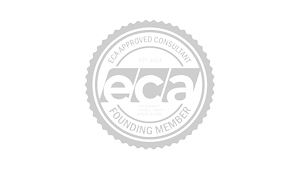Navigating the intricate world of business energy procurement can often feel like trying to solve a complex puzzle with missing pieces, especially when attempting to secure the best energy deals amidst a labyrinth of compliance requirements, contract intricacies, and fluctuating market conditions. This endeavour becomes even more daunting in the face of deregulated markets, where the freedom of choice paradoxically adds layers of complexity to decision-making processes.
Understanding these challenges, this discussion aims to illuminate the path, offering clarity and strategic insights derived from deep industry knowledge.
With a keen focus on the diverse landscape of rules and regulations that vary significantly across different countries and markets, we delve into the critical aspects that businesses must consider to optimize their energy costs effectively. By addressing the importance of transparency, fairness in energy procurement, and the impact of market deregulation, we equip you with the tools to make informed decisions.
As we embark on this exploration together, rest assured that the insights and guidance provided will empower you to navigate the energy procurement process with greater confidence and foresight, encouraging you to read on for comprehensive solutions tailored to your unique needs.
Key Takeaways
- Energy procurement regulations and regulatory bodies play a crucial role in ensuring fair and transparent energy procurement practices.
- Regulatory compliance is essential for businesses to protect consumer interests, avoid penalties, and build trust.
- Deregulated markets offer businesses the opportunity to secure favourable energy contracts and promote competition and innovation.
- When negotiating contract terms, businesses should prioritise transparency, fairness, and equity, considering factors such as pricing, sustainability, and legal compliance.
Energy Procurement Regulations Overview
The Energy Procurement Regulations Overview provides a comprehensive analysis of the regulatory framework governing the process of procuring energy for businesses, ensuring compliance and efficiency. These regulations establish the guidelines that businesses must follow when procuring energy, ensuring that the process is fair, transparent, and competitive.
The regulatory framework for energy procurement aims to promote a level playing field among suppliers, allowing businesses to choose from a wide range of options that best fit their needs. It sets out guidelines for the procurement process, including requirements for transparency in supplier selection, contract terms, and pricing structures.
Businesses must adhere to these procurement guidelines to ensure that they are obtaining energy from reliable and reputable suppliers. By following these regulations, businesses can reduce their risk of encountering hidden charges or unreliable supply.
Furthermore, the regulatory framework promotes efficiency in the procurement process. It encourages businesses to consider factors such as sustainability targets and renewable energy options when selecting their energy suppliers. This helps businesses align their energy procurement strategies with their sustainability goals, contributing to a greener and more sustainable future.
Regulatory Bodies and Authorities
Regulatory bodies and authorities play a crucial role in the energy procurement process. They oversee compliance with industry regulations and standards, ensuring fair competition and protecting consumer interests. These governing bodies and agencies establish and enforce rules to promote transparency, integrity, and a level playing field for all participants. They set guidelines for energy procurement practices and supplier accreditation.
Governing Bodies and Agencies
Governing bodies and agencies overseeing energy procurement play a crucial role in ensuring compliance with laws and standards, as well as promoting fair and efficient practices. These regulatory bodies and authorities work diligently to provide oversight and regulatory enforcement in the energy procurement sector. Here are four ways in which they contribute to the industry:
- Setting and enforcing rules: Regulatory bodies establish and enforce rules and guidelines to ensure that energy procurement practices adhere to ethical standards and legal requirements.
- Protecting consumers: These entities monitor and enforce energy procurement contracts to protect consumers, ensuring that they receive fair pricing, reliable services, and transparent market information.
- Resolving disputes: Regulatory bodies act as mediators, resolving disputes between parties involved in the energy procurement process, ensuring fair and equitable resolutions.
- Market stability: By maintaining the integrity and stability of the energy market, regulatory bodies ensure that businesses adhere to procurement regulations, promoting a level playing field and fostering innovation.
Through their oversight and enforcement, these governing bodies and agencies contribute to a well-regulated and efficient energy procurement sector, driving innovation and sustainable practices.
Regulatory Compliance Requirements
With their focus on ensuring compliance with laws and regulations, regulatory bodies and authorities play a crucial role in overseeing the energy procurement sector and promoting fair and efficient practices.
Regulatory compliance is of utmost importance in the energy procurement industry due to the various challenges it faces. These challenges include consumer protection, environmental standards, and fair business practices.
Regulatory bodies, such as Ofgem in the UK, enforce rules to protect consumers and ensure fair competition in the energy market. Compliance with regulatory requirements is essential for businesses to avoid penalties, maintain integrity, and build trust with consumers.
Staying informed about regulatory updates and changes is critical for businesses to adapt their energy procurement strategies accordingly.
Compliance Requirements for Businesses
Businesses are required to adhere to a comprehensive set of regulations and laws when it comes to energy procurement. Compliance with these requirements is crucial as it ensures that businesses operate in an environmentally responsible and sustainable manner. Here are four key compliance requirements that businesses must meet:
- Government regulations: Businesses must comply with government requirements at local, regional, and national levels. These regulations may include obtaining permits and licenses, adhering to energy efficiency standards, and reporting energy usage.
- Industry standards: Many industries have specific standards and guidelines for energy procurement. Businesses must stay updated on these standards and ensure their procurement practices align with industry expectations. This may involve implementing energy-efficient technologies, using renewable energy sources, or participating in industry-wide sustainability initiatives.
- Environmental targets: Businesses are increasingly under pressure to reduce their environmental impact and contribute to sustainability efforts. Compliance with environmental targets may involve setting and achieving specific energy reduction goals, investing in renewable energy projects, or adopting energy-efficient technologies.
- Penalties and legal consequences: Failure to comply with energy procurement regulations can result in penalties, fines, and legal consequences. Businesses must, therefore, prioritise compliance to avoid reputational damage, financial losses, and potential legal actions.
Impact of Deregulated Markets
As businesses navigate the complex landscape of energy procurement compliance, one significant factor that can impact their decision-making process is the presence of deregulated markets. Deregulated markets, such as the UK energy market, allow for multiple utility providers, increasing market competition and promoting consumer options. The aim of deregulation is to drive down energy prices and increase competition by removing government control and regulations.
In a deregulated market, businesses have the flexibility to choose from various energy suppliers and contract options. This provides opportunities for businesses to negotiate and find the best energy deals. The presence of market competition encourages energy suppliers to offer competitive prices and innovative services to attract customers.
The impact of deregulated markets on business energy procurement is significant. Businesses can take advantage of the competitive landscape to secure favourable energy contracts that meet their specific needs. They have the freedom to shop around and compare prices, services, and renewable energy options. Additionally, deregulated markets promote innovation in the energy sector as suppliers strive to differentiate themselves from competitors.
Understanding the impact of deregulated markets is crucial for businesses to make informed decisions in energy procurement. It allows them to leverage the benefits of market competition and consumer options to optimise their energy costs and sustainability goals. By staying informed about the energy market dynamics, businesses can take advantage of deregulation and secure the best energy solutions for their operations.
Contract Terms and Conditions
Contract terms and conditions play a crucial role in defining the obligations, responsibilities, and rights of both parties involved in business energy procurement. Understanding and negotiating these terms is essential for businesses to ensure that their energy contracts align with their operational and financial needs. Here are some key tips for energy supplier negotiation and contract negotiation:
- Thoroughly review the contract: Businesses should carefully examine the contract terms and conditions to understand the duration of the agreement, payment terms, renewal conditions, termination procedures, and any penalties or fees. This helps avoid unexpected costs and ensures compliance with regulatory requirements.
- Seek favourable terms: During contract negotiation, businesses should strive to negotiate terms that are favourable to their interests. This may include securing competitive pricing, flexible payment terms, and favourable termination clauses.
- Consider energy consumption and sustainability: Contract terms and conditions may include clauses related to energy consumption, sustainability commitments, and potential adjustments for market fluctuations. Businesses should consider these factors and negotiate terms that align with their sustainability goals and future energy needs.
- Engage legal expertise: Engaging legal counsel with expertise in energy procurement can provide valuable insights and help businesses navigate complex contract negotiations. Legal professionals can ensure that contracts are compliant with regulations and protect the business’s interests.
Ensuring Transparency and Fairness
Ensuring transparency and fairness in the business energy procurement process is crucial for creating a level playing field.
This involves providing businesses with clear and honest information from energy suppliers, including transparent pricing structures and disclosure of any potential conflicts of interest.
Additionally, it is essential to facilitate the ability of businesses to compare offers from different suppliers, ensuring that they can make informed decisions and obtain the best possible deal.
Transparency in Procurement
Transparency in procurement is a crucial aspect of the business energy procurement process, ensuring fairness, accountability, and competitive opportunities for all potential suppliers.
To achieve transparency, businesses need to clearly outline the evaluation criteria and selection process for energy suppliers. This includes specifying the factors that will be considered when evaluating suppliers, such as their pricing, reliability, and sustainability practices.
By implementing transparent procurement practices, businesses can prevent bias and favouritism in supplier selection, promoting a level playing field for all participants.
Moreover, transparency in procurement allows businesses to demonstrate accountability and build trust with stakeholders, including customers and investors.
Ultimately, ensuring transparency in procurement leads to fair and competitive opportunities for all potential suppliers, fostering innovation and driving the energy market forward.
Fairness in Energy Sourcing
To ensure fairness and equity in the energy sourcing process, businesses must establish clear and unbiased procedures that promote transparency and equal opportunities for all potential suppliers. By implementing these measures, businesses can uphold integrity and openness in their energy procurement decisions.
One way to achieve fairness is by considering sustainable practices and renewable energy options. This allows businesses to support environmentally friendly initiatives while also promoting a level playing field for all suppliers. By incorporating sustainable practices and renewable energy options into their procurement processes, businesses can encourage innovation and drive the adoption of clean energy solutions.
Furthermore, transparent procedures enable businesses to make informed decisions based on the merits of each supplier, ensuring that all participants are treated fairly and given equal opportunities to compete.
Ensuring Equitable Practices
Businesses must establish clear and unbiased procedures that promote transparency and equal opportunities for all potential suppliers in order to ensure fairness and equity in the energy sourcing process. This includes treating all suppliers equally and providing them with the same opportunities during the procurement process. To ensure equitable practices in energy procurement, businesses should consider the following:
- Impact on Small Suppliers: Small suppliers often face challenges in competing with larger companies. Businesses should create a level playing field by providing fair opportunities and considering the impact of their decisions on smaller suppliers.
- Supplier Diversity: Promoting supplier diversity is essential for fostering innovation and driving economic growth. Businesses should actively seek out suppliers from diverse backgrounds and ensure they have equal opportunities to participate in the procurement process.
- Transparent Evaluation Criteria: Establishing clear and transparent criteria for evaluating suppliers and contracts helps to eliminate bias and ensure objective decision-making.
- Accessible Information: Providing accessible and comprehensive information to all suppliers allows for informed decision-making and helps to build trust and confidence in the procurement process.


















